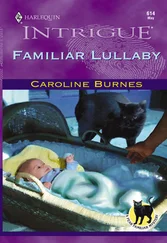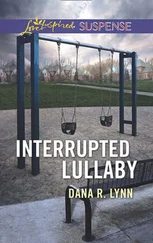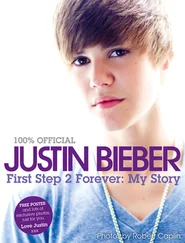Peter didn’t laugh when Anatoly got in trouble for rollerblading between classes, or when the boy recited pi at the talent show (the anti-valedictorians at the back of the auditorium cough-shouted, “Sixty-nine”). Peter respected Anatoly, how the boy always carried a book, and not a textbook but something from the town’s library, maybe a history of the French and Indian War or a guide to martingale betting.
Every day Anatoly brought the same lunch, always one hard-boiled egg, a boiled potato, and pencil-thin pickled carrots; his mother packed his food in a heavy plastic bag from RadioShack — instead of blue gel packs, she kept his lunch cold with balls of wet newspaper that she refroze each night.
It was Anatoly who pushed Peter toward medicine. One day, while Mrs. B. reheated her lunch in the teachers’ lounge, Anatoly said, “You’re not as good at math as she pretends.”
“What’s that supposed to mean?” Peter knew exactly what Anatoly meant.
“I think you should consider making a doctor. People want to please you — because of your face.”
Peter tried to give the boy a hard look.
“I don’t mean that homosexually.”
“What are you going to do?”
Anatoly smiled. “I am always doing.”
“Thanks for clearing that up.”
“I will make big sums of money and have intercourse with models and women newscasters.”
WITH HIS CAR idling by the curb, Peter needed a plan. He thought about contacting someone in Human Resources, but he also thought that might be the worst thing he could do. Would they be on his side? The hospital’s side? Were he and the hospital at odds?
If he needed to prostrate himself before the powers that be, he wanted to know what he was up against. He paged Martin, who called back immediately. “They’re waiting for you in the conference room on Six West.”
“They?”
“Peg, Bucky Katz from H.R., Martinez, Ray Cooper. I usually attend these sorts of things, but I asked to sit this one out.”
“Which department is Cooper in?”
“Don’t ask. Did you really auction your services to a certain Grammy Award winner?”
“This is all a big misunderstanding.”
“So Tony Ogata blew up the switchboard over a misunderstanding?”
“Don’t kid.”
“One of his assistants left a message on my machine at a quarter of five. He spoke with Peg.”
Exposure , Peter thought. “I was told Ogata might make some ‘discreet inquiries.’ That’s a quote.”
“Who told you that?”
“You won’t believe me.”
“The Japanese don’t fuck around with sneak attacks.”
“I get it.”
“You get it! I’m Filipino — my people lived it.”
“Are you trying to scare me?”
“I’m not sure what’s going on, but Ogata lit a fire under Peg’s ass. For your sake, I hope you’re already scared.”
“This is all about Judith somehow.”
“Do me a favor, take a look around when you get to Six West. I don’t think Judith’s going to be there.”
WHEN HE PULLED up to the gate, the parking attendant stuck his head out of his kiosk. “Morning, Dr. Silver.”
“Hi,” Peter said, resisting the urge to stomp on the gas.
The attendant pointed a finger at an elderly man bent over the steering wheel of a golf cart. “Buzz will give you a ride to your meeting.”
As Peter got out of his car, the cart glided up — behind the driver an orange dome light flashed on and off on a long stalk.
“You must be Buzz?”
The man patted the bench seat next to him.
They zipped through the parking garage and inside the main entrance, past the billing center, past scheduling, past the gift shop and Friendly’s, past Physical Therapy and the pharmacy. Buzz nosed the cart against the west bank of elevators, where, without leaving his seat, he leaned forward and pushed the up button; turning to Peter, he said, “They’re waiting for you on six.”
What would happen if Peter walked away? He was still a doctor after all. That ought to mean something. But the hospital had protocols in place to deal with the noncompliant. Things could escalate quickly. Should a staff member get on the intercom and announce, “Dr. Brown is needed by the West Elevator,” the orderlies were trained to respond en masse. In a matter of moments the lobby would look like a tryout for Rochester’s arena football team.
The elevator door yawned open and Peter stepped inside. The doors closed. He felt his body get heavy as the steel room started its ascent.
ON THE FOURTH floor, a bell chimed. The elevator stopped, and the door opened.
A small man, probably in his early fifties, reached inside the elevator and barred the door from closing. “Dr. Silver?”
He wore a loose-fitting gray suit jacket, tan slacks, and black dress shoes. An orange bow tie made him appear gift-wrapped. His hair was dark, parted near the top of his head, and combed straight back. His upper lip was invisible beneath the overhang of his mustache. He reached into an open briefcase. “I’ve got some things for you to sign before we head up there.”
“Are you Cooper?” Peter asked.
“I’ve left half a dozen messages on your phone, Dr. Silver. I’m Leo Kopp.” The little man blinked, “Mr. Cross sent me. I’m your attorney.”
Gene introduced himself to me six years ago in Syracuse. According to my ticket, I had a seat reserved in the front row, but the show was on the university campus and the students had decided that anyone who could afford a seat up close didn’t deserve it. All of us gray hairs were huddled in the back of the hall watching the kids. Most of us had children their age and so we didn’t entertain thoughts that we’d be welcome up front.
The kids cheered while Cross played “Green Dandy,” which, among other things, is about the treachery of youth. I watched the crowd as much as I watched the performance. Maybe I was wondering if the kids were there to bask in the music or the fame. At this point in his career, Cross could probably get away with putting a wax dummy on stage, since being able to say you saw him seemed to have supplanted the act of hearing the music. Basically, I was at the back of the room, surrounded by old people and having old people thoughts.
A beer sort of floated in front of me. I turned and there was this guy holding it out. He had a second beer in his other hand.
“I bought you a beer,” he said. He had a big oval face and these dark, deep-set eyes.
We tapped our plastic cups together and drank.
“You’re Pennyman,” he said. He pointed his thumb at his chest. “We’ve emailed before. I’m Badmonkeyfunker.”
We were virtual acquaintances. Sometimes he would send a note of encouragement after I’d encountered a challenge on the road. He came across as perpetually enthusiastic: “Great write-up!” or “Feels like I was there.”
He told me to call him Gene.
I thanked him for the beer and we listened to a few songs together. Up near the stage, the kids were batting a beach ball around. It annoyed me.
“Fucking college kids,” Gene said.
I nodded.
“They come into your church and act like it’s a basement kegger. Do you know what I’m talking about?”
I said I got his point.
“Someone should go down there and pop that fucking ball.”
“Be my guest,” I said.
Gene laughed. “I’m all talk.”
“Well, I’m no talk.”
I meant it as a joke, but Gene said, “I’m bothering you.”
“No,” I said, tapping cups with him again.
Gene drained his beer. “I’m going to get us two more.”
I like meeting fans, but it doesn’t always go so well. Sometimes when people recognize me, they assume that I don’t want to be interrupted, that I enjoy the music on some different level (like I’m comparing that night’s version of “Shitheel” with the version Cross played in Oakland ten years before), so they watch me from a distance. It’s even more awkward when they don’t introduce themselves, but step up to me and blurt out an arcane trivia question: Name the only two drummers to earn writing credits on Cross albums? When that happens, I offer my hand and tell them I’m there for the show. 12
Читать дальше












